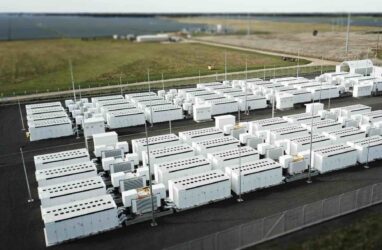Around The Web
‘Termination shock’: cut in ship pollution sparked global heating spurt
Sudden cut in pollution in 2020 meant less shade from sun and was ‘substantial’ factor in record surface temperatures in 2023, study finds
The slashing of pollution from shipping in 2020 led to a big “termination shock” that is estimated have pushed the rate of global heating to double the long-term average, according to research.
Until 2020, global shipping used dirty, high-sulphur fuels that produced air pollution. The pollution particles blocked sunlight and helped form more clouds, thereby curbing global heating. But new regulations at the start of 2020 slashed the sulphur content of fuels by more than 80%.
Continue reading...Barnaby Joyce ditched his RM Williams to protest green energy … Wait until he finds out about his new boots | Calla Wahlquist
The Nationals MP is against RM Williams owner Andrew ‘Twiggy’ Forrest’s renewables projects – so why wear Ariats?
- Sign up for the Rural Network email newsletter
- Join the Rural Network group on Facebook to be part of the community
Earlier today, as I was reverse Google image searching a picture of Barnaby Joyce’s feet, I wondered if I was perhaps taking this too seriously.
The National party MP has been attending parliament without his habitual RM Williams boots in protest against the owner of the classic Australian fashion brand, Andrew “Twiggy” Forrest, whose company Squadron Energy is building wind and solar developments across New South Wales and Queensland, including in Joyce’s electorate of New England.
Sign up to receive Guardian Australia’s fortnightly Rural Network email newsletter
Continue reading...Deadlock over funding frustrates last CBD biodiversity talks before COP16
Canadian risk experts call for climate frameworks to address nature
NSW formally opens its biggest energy storage tender amid questions over duration
The post NSW formally opens its biggest energy storage tender amid questions over duration appeared first on RenewEconomy.
Home energy upgrade plan finally kicks off, with $60m of low cost loans for solar, batteries and electrification
The post Home energy upgrade plan finally kicks off, with $60m of low cost loans for solar, batteries and electrification appeared first on RenewEconomy.
Buy voluntary carbon credits now as debate of future value over, says bank
Countries over-reliant on carbon removals in national climate plans, finds report
Net zero transition cheaper for consumers than status quo, IEA report finds
New bill could bail out US farmers ruined by ‘forever chemical’ pollution
The bipartisan proposal that would remediate farms affected by toxic PFAS contamination is gaining speed in Congress
The US may soon bail out farmers whose livelihoods were destroyed by toxic PFAS “forever chemical” contamination.
The proposal for a $500m fund aims to head off a crisis for the nation’s growers and is moving through Congress amid increasing evidence that PFAS-contaminated sewage sludge used as a cheap fertilizer alternative poisoned crops and livestock. Separately, around 4,000 farms nationwide have been contaminated by PFAS from neighboring military bases.
Continue reading...Euro Markets: Midday Update
CDC Biodiversite flags complexity of brokers trading biodiversity credits
Malaysian developer launches plastic waste collection, recycling methodology
Corporations invested in carbon offsets that were ‘likely junk’, analysis says
Analysis of the carbon offset projects used by top corporations including Delta, Gucci and ExxonMobil raises concerns around their emission cuts claims
Some of the world’s most profitable – and most polluting corporations – have invested in carbon offset projects that have fundamental failings and are “probably junk”, suggesting industry claims about greenhouse gas reductions were likely overblown, according to new analysis.
Delta, Gucci, Volkswagen, ExxonMobil, Disney, easyJet, and Nestlé are among the major corporations to have purchased millions of carbon credits from climate friendly projects that are “likely junk” or worthless when it comes to offsetting their greenhouse gas emissions, according to a classification system developed by Corporate Accountability, a non-profit, transnational corporate watchdog
Continue reading...




